Gambling in Japan is banned primarily because of the long-standing involvement of the Yakuza. But there are several other notable reasons for the gambling ban in Japan.
Gambling in Japan and the Terrible Yakuza Influence
The Yakuza, Japan’s notorious organized crime syndicate, are known for their reputation of violence and mischief. Often depicted in popular media such as Hollywood films, anime, manga, and general literature, the Yakuza have a longstanding presence in Japanese society.
Despite being shunned by politicians and feared by the general public, they can often be found lurking in places like nightclubs, strip clubs, bars, and pachinko parlors.
The mere mention of the Yakuza is enough to send shivers down the spine of the average Japanese person, who would prefer to pretend they don’t exist. However, the Yakuza’s influence and power cannot be denied, especially when it comes to gambling.
The Yakuza, Japan’s infamous organized crime group, has a long history dating back to the Edo period (1603-1868) in feudal Japan. During this time, Japanese society was divided into different classes, including the warrior class (samurai) and the farmer class. Lesser-known classes included the tekiya, or thieves, and the bakuto, or gamblers. The
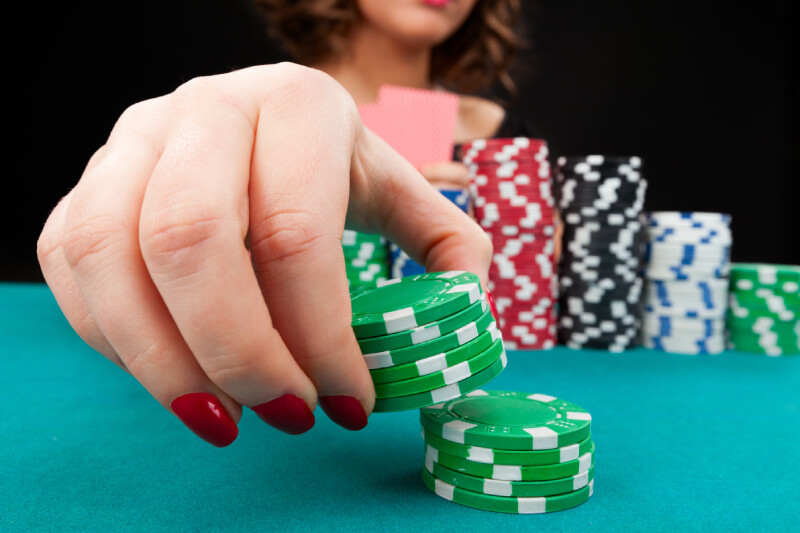
Yakuza emerged from these two classes and were made up largely of individuals from lower social standing and those who were ostracized by society. The name “Yakuza” is derived from a losing hand in the card game Oicho-Kabu, and gambling has always been a central part of their activities. In addition to gambling, the Yakuza also engaged in loan sharking and the sale of fake goods.
The modern structure of the Yakuza took shape in the early 20th century, and during World War II, the group was forced to disband to support the war effort. After the war ended, they resumed their criminal activities. The Yakuza have a complex hierarchy, similar to other organized crime groups such as the Italian Mafia.
Members of the Yakuza are easily identifiable by their full-body tattoos, known as irezumi, which are traditionally revealed when playing Oicho-Kabu with one another.
To conceal their tattoos in public, Yakuza members typically wear long-sleeved shirts. Today, Yakuza families are the dominant form of organization, with the largest family, the Yamaguchi-Gumi, accounting for half of the 103,000 active members. The Sumiyoshi-kai is another well-known family, known for its more laid-back leadership style.
Illegal casinos in Japan are often run by the Yakuza. In addition to offering a range of traditional casino games, these establishments also allow patrons to play mahjong for money. Many mahjong parlors in Japan have connections to the Yakuza, who use their influence to collect debts from players who fail to pay.
While the Yakuza’s involvement in the gambling industry is well-known, their involvement in illegal casinos and mahjong parlors remains a controversial and often secretive aspect of their operations.
Criminal Code Chapter 23 – Japan Law Banning Gambling
Do you enjoy gambling? Well, you may want to stay off it while in Japan. Chapter 23 of Japan’s Criminal Code prohibits organized wagering or private sales of lottery tickets. Anyone found guilty of violating this law faces hefty fines to a maximum of ¥ 1.5 million or imprisonment of up to two years.
The law defines gambling as the act of placing valuables against the outcome of events whose result is uncertain due to its basis on chance. So, for example, waging your title deed as a stake on a football match constitutes gambling.
You can attribute the law’s existence to two reasons. Firstly, Japanese society frowns upon all forms of immoral behavior. Excessive gambling can lead to a loss of livelihood and addiction. Consequently, you become a burden to society due to your unproductivity. Your actions force the government to invest heavily in your rehabilitation rather than development.
The other reason is that ever since the ban, illegal casinos continue to operate in the shadows. Furthermore, these underground betting halls have ties to the Yakuza, an outlaw organization in Japan. With Penal Code Law 45 in effect, it is easier for the authorities to apprehend and convict gang members and curb their numbers.
Do Japanese like gambling?
It seems so. Gambling is a relatively popular activity in Japan, and many Japanese people enjoy participating in various forms of gambling, both legal and illegal.
However, gambling is heavily regulated in Japan, and the government only allows certain types of gambling, such as:
Nationwide and prefectural lotteries
Lotteries, locally known as Takara Kuji, are a common practice in Japanese society. The Takara Kuji law allows the running of lotteries within its 12 specially designated cities and 47 prefectures. However, a minimum of half the winnings goes to charities and the local government. The additional source of income is a welcome boost to the local government’s coffers. Consequently, lotteries are exempt from the law because of the continuous cash injections.

However, you need to be wary when participating in these pools as an expatriate. Your winnings may be taxable income, depending on your home country’s laws. For example, US citizens can pay up to 30% of their total winnings as tax.
Pachinko
Pachinko is the result of meshing a slot machine, pinball machine, and video game. To play, insert money, as you would in a casino slot machine, to release a set of miniature metallic balls. Then, you fire them using pneumatic air jets (pinball machines use paddles) while aiming for the prize holes.
A successful hit opens a mini-video game where victory earns you more balls to trade for non-monetary prizes. For example, you can exchange the winning balls for candy or other special rewards. In addition, you can exchange special rewards for cash at stores adjacent to the pachinko parlor. Since the transaction occurs outside the parlor, there is no violation of the gambling rule.
Sports betting
Do not get too excited. Japan has stringent guidelines for sports betting. As a start, the exemption is only for pari-mutuel betting. Here, all the bets end up in a pool, and your total winnings result from sharing the betting pool among the winning slips. Additionally, you can only bet on sports under the national or municipal governments’ authorization.
For example, wagering is only applicable to motorsports, horse racing, and bicycle races.
As of writing, casino gambling is illegal in Japan, except for a small number of casinos that were recently legalized in integrated resort facilities. Despite the strict laws, many Japanese people still participate in illegal forms of gambling, such as underground casinos and online gambling. As a result, the gambling industry in Japan is a significant source of revenue for the Yakuza, Japan’s organized crime syndicate, which is known to operate illegal casinos and other gambling activities.
Public Sports
Public sports are known as Kōei kyōgi in Japanese. They’re public racing options that Japanese people can legally bet on. These races are legal and regulated by local governments or governmental corporations.
There are 4 types of public sports available for legal betting in Japan, namely:
- Asphalt speedway motorcycle racing
- Powerboat racing
- Bicycle racing
- Horse racing
All of these forms of racing utilize a system called parimutuel betting, where the prize pool for gamblers comprises 70-80% of total sales. Betting tickets for these races can be purchased at various circuits and ticket booths, known as off-track betting, located in many cities across the country. While gambling on these races is allowed by special laws, other forms of gambling, such as casinos, are illegal in Japan.
Overall, gambling is a controversial topic in Japan, and opinions on the activity vary among Japanese people. Thus, it is difficult to generalize the attitudes of Japanese people toward gambling. While some Japanese people do enjoy gambling, others view it as a social problem and are opposed to it. Most Japanese gamblers enjoy lottery games and betting on horse, boat, and bicycle races.
How long has gambling been illegal in Japan?
Gambling has been illegal in Japan for most of the country’s history. During the Edo period (1603-1868), gambling was strictly prohibited and considered a vice. This prohibition continued after the Meiji Restoration in the late 1800s, which marked the beginning of modern Japan.
There were some exceptions to this prohibition, such as the lottery, which was introduced in the late 1800s and remains legal in Japan today. In the 1920s, horse racing and boat racing were also legalized, and these forms of gambling are still allowed in Japan today. However, most other forms of gambling, including casinos, are illegal.
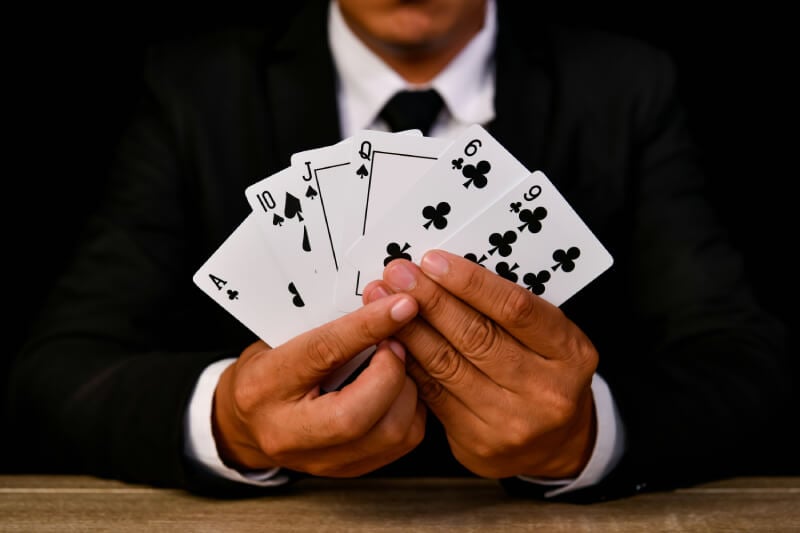
Japan continues to prohibit gambling since the law’s introduction in 1907. But there have been some efforts to legalize casinos in Japan in recent years, as the government has seen the potential for casinos to boost tourism and the economy.
There have also been efforts to relax some of the legislation in recent years. For example, the 2018 approval of the Integrated Resort Enabling Act approves land-based casinos in the country. You can legally operate a casino if it is part of the facilities of your resort, such as hotels and exhibition halls.
However, these efforts have faced significant opposition from those who view gambling as a social problem and are concerned about the potential negative consequences of legalizing casinos. As a result, gambling remains illegal in Japan for the most part, with only a few exceptions.
Is gambling big in Japan?
Gambling is not a major part of Japanese culture and is not as prevalent in Japan as it is in some other countries. While some forms of gambling, such as horse racing and boat racing, are legal and widely accepted in Japanese society, other forms of gambling, including casinos are illegal and not widely practiced.
Despite Japan outlawing most forms of gambling, its popularity has never been more significant. A recent study by SimilarWeb and The Asahi Shimbun reveals that the number of Japanese gamblers increases year after year.
For example, there were slightly over 49 million monthly online casino visitors as of November 2020. It represents an increase of around 120 times to the 648,000 of December 2018.
Although overseas online gambling remains illegal, the establishment of the Casino Administration Committee in January 2020 indicates the industry’s increasing favor with the government. The committee’s mandate is to oversee the operations of potential integrated resort operators. Furthermore, the interest from mega operators like MGM Resorts, Getting Singapore, and Melco Resorts, emphasize the enormity of the Japanese gambling market.
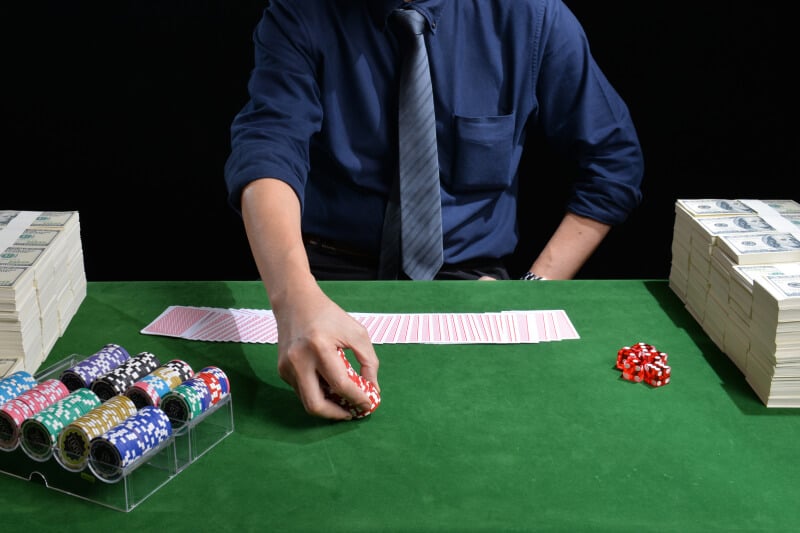
That being said, there is some demand for gambling in Japan, and the country has a small but thriving underground gambling industry. Illegal casinos, known as “pachinko parlors,” are a common sight in Japan, and the Yakuza, Japan’s organized crime group, are known to be involved in the illegal gambling industry. In addition, sports betting, although illegal, is also popular in Japan.
Overall, gambling is not a major part of Japanese culture, but it does exist and is enjoyed by some people in the country.
The Size of the Gambling Industry in Japan
It is difficult to accurately estimate the size of the gambling industry in Japan due to the illegal nature of much of it. However, it is known that some forms of gambling, such as horse racing and boat racing, are legal and generate significant revenue.
According to the Japan Racing Association, horse racing is the most popular form of legal gambling in Japan, with over 10 million people placing bets on races each year. In 2019, the industry generated revenue of approximately $12.5 billion.
Boat racing is another popular form of legal gambling in Japan, with over 6 million people placing bets on races each year. The industry generates revenue of approximately $2.5 billion per year.
In addition to these legal forms of gambling, Japan also has a small but thriving underground gambling industry, which includes illegal casinos and sports betting. It is difficult to estimate the size of this industry, but it is likely to be a significant portion of the overall gambling market in Japan.
Is gambling in Japan illegal?
Most forms of gambling are illegal in Japan, with only a few exceptions. Horse racing and boat racing are legal and regulated by the government, and these forms of gambling are widely accepted in Japanese society. The lottery is also legal and popular in Japan.
Casinos and most other forms of gambling, however, are illegal in Japan. This has been the case for most of Japan’s history, and gambling is generally viewed as a social problem in the country. Despite this, there is a small but thriving underground gambling industry in Japan, which includes illegal casinos and sports betting.
These activities are often associated with organized crime, and the Yakuza, Japan’s organized crime group, are known to be involved in the illegal gambling industry.
There have been efforts in recent years to legalize casinos in Japan, as the government sees the potential for casinos to boost tourism and the economy. However, these efforts have faced significant opposition from those who view gambling as a social problem and are concerned about the potential negative consequences of legalizing casinos. As a result, gambling remains illegal in Japan for the most part, with only a few exceptions.
When did gambling become illegal in Japan?
Gambling has been illegal in Japan for almost the entire history of the country. During the Edo period (1603-1868), gambling was strictly prohibited and considered a serious vice. This prohibition continued after the Meiji Restoration in the late 1800s, which marked the beginning of modern Japan. Most notably, all forms of gambling were declared illegal in 1907.
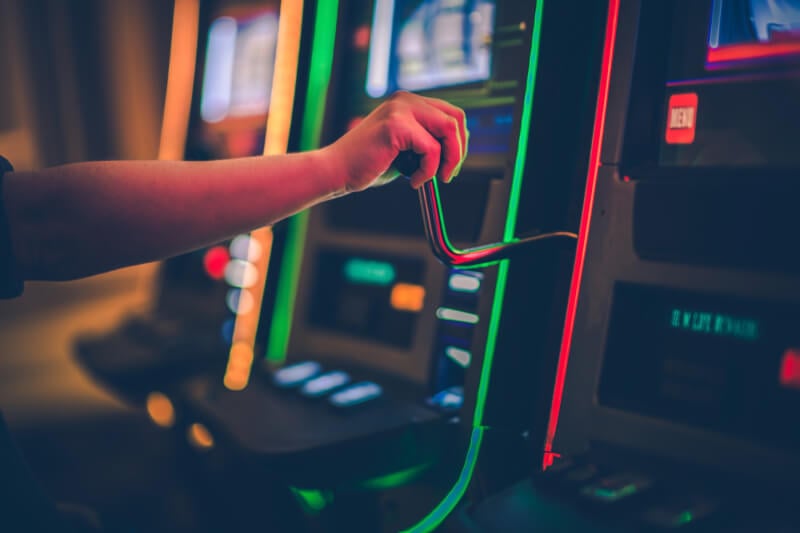
There were some exceptions to this prohibition, such as the lottery, which was introduced in the late 1800s and remains legal in Japan today. In the 1920s, horse racing and boat racing were also legalized, and these forms of gambling are still allowed in Japan today. However, most other forms of gambling, including casinos, are illegal.
There have been some efforts to legalize casinos in Japan in recent years, as the government has seen the potential for casinos to boost tourism and the economy. However, these efforts have faced significant opposition from those who view gambling as a social problem and are concerned about the potential negative consequences of legalizing casinos.
Why are casinos illegal in Japan?
Casinos are illegal in Japan, with only a few exceptions. While there have been efforts in recent years to legalize casinos in Japan, the government has so far resisted these efforts due to concerns about the potential negative consequences of legalizing casinos.
Why Japanese Casino Market Has No Legal Casino Operators
There are several reasons why casinos are illegal in Japan:
- Gambling is generally viewed as a social problem in Japan, and the government has a history of strict regulation and prohibition of gambling activities.
- The government is concerned about the potential negative consequences of legalizing casinos, such as an increase in gambling addiction and financial problems for individuals and families.
- Some people in Japan oppose the legalization of casinos on moral grounds, arguing that gambling is unethical and goes against traditional values.
- The government is also concerned about the potential for organized crime, such as the Yakuza, to be involved in the casino industry.
- Some people in Japan believe that the legalization of casinos could hurt the country’s reputation and image.
- There are also concerns about the potential negative environmental and social impacts of casinos, such as increased traffic and crime.
Pandemic Slowed the Adoption of Casino Gambling in Japan
The COVID-19 pandemic continues to impact businesses globally. Moreover, with Japan yet to play host to the 2020 Olympic Games, implementation of certain facets of the new casino law will continue to play second fiddle.
Delayed Execution of the IR Implementation Act
Despite the new casino law in Japan, there are still no legal casinos currently operating. That’s because the IR Implementation Act is still in its infancy. Furthermore, industry insiders still feel that its regulatory framework needs more work. For example, it mentions that the Japanese government still has about a year to finalize the necessary legislative measures to enforce it effectively.
Negative Perception of Gambling in Japan
Most Japanese people are still skeptical about the long-term benefits that will accrue from casino legalization. Most of the public survey results report very little support for the initiative among the general population. Moreover, fears of gambling addiction and the threat of the Yakuza’s interference continue to delay full legalization.
Casino Law in Japan
There are currently no laws in Japan that specifically address the issue of casinos. However, the Penal Code of Japan includes provisions that prohibit gambling activities, including the operation of gambling establishments. The government also has the authority to regulate and prohibit gambling activities under the Act on Prevention of Unlawful Activities by Criminal Gangs.
Despite the illegal status of casinos in Japan, there is a small but thriving underground gambling industry in the country, which includes illegal casinos and sports betting. These activities are often associated with organized crime and are largely unregulated.
New Dawn to Casinos in Japan: The Integrated Resort (IR) Implementation Act of 2018
The Integrated Resort (IR) Implementation Act of 2018 (also known as the Casino Act) is the new law in Japan that legalized the operation of casinos in the country. The Act allows for the construction and operation of integrated resort facilities, which include casinos, as well as hotels, conference centers, and other amenities.
The Act was passed in 2018, following years of debate and controversy over the legalization of casinos in Japan. The government saw the potential for casinos to boost tourism and the economy, and the Act was seen as a way to attract more foreign visitors to Japan.
Under the Act, casinos can only be operated as part of an integrated resort, and operators must obtain a license from the government to open a casino.
The Act also includes provisions to address concerns about problem gambling and the potential for organized crime involvement, such as strict regulations on who can enter casinos and limits on the amount of money that can be spent by individual patrons.
The Act has been controversial, with some people in Japan opposing the legalization of casinos due to concerns about the potential negative consequences, such as increased gambling addiction and social problems. However, the Act has also received support from those who see the potential for casinos to boost tourism and the economy.
New Changes Introduced by the Casino Act
What are the new changes to casino law in Japan? The Integrated Resort (IR) Implementation Act of 2018 states the following:
Regulating Authorities
All integrated casino operators offering land-based gambling should adhere to the regulations of the Casino Supervising Commission. Additionally, operators wishing to include pachinko at their facilities need to obtain their business permits from local public safety commissions. Furthermore, these facilities need to be proximal to gift shops where winners can exchange their winning balls and tokens for goods and cash.
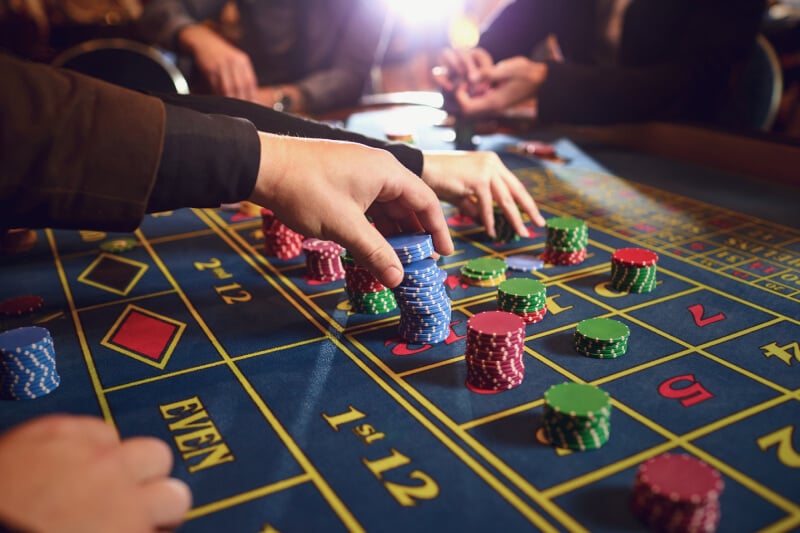
Operating licenses are only available to IR operators with certifications from the Minister of Land, Infrastructure, Transport, and Tourism. As a start, the commission shall only grant three IR operating licenses. Finally, the successful operator can only run one casino in the designated IR area.
Permissible Gambling Activities
An IR operating license allows you to conduct land-based gambling in the following activities:
– Japanese horse racing
The rule only caters to events that take place within Japan’s borders. Therefore, betting on events like the Royal Ascot remains illegal.
– Lotteries
You can only provide gambling services for lotteries run by either the government or local public safety institutions. They include Toto (Japanese football lottery) and Takara Kuji.
– Local motorsports
Events that feature the racing of boats and motorcycles on local soil are legal. Additionally, the new law also permits wagering on local bicycle races.
Admission rules
The new casino gaming and gambling regulations in Japan sets the minimum age for legal gambling at 20 years. However, gambling remains illegal for students of this age.
Establishment guidelines
The IR Implementation law prohibits establishing casino operations near educational institutions, medical facilities, and public libraries. Furthermore, prospective IR operators should satisfy the commission’s eligibility criteria regarding human resources, financial stability, profitability, and technology.
Tax Liability
Casino businesses that acquire a license will be subject to the following taxes:
– Floating national tax
A licensed IR operator shall either pay the floating national tax to an amount that is 15% of their gross gaming revenue or equal to the commission’s administrative expenses.
– Floating municipal tax
The floating municipal tax is a monthly payment equal to 15% of the operator’s monthly gross gaming revenue. Furthermore, remittances are due on a specific day of each month.
Finally, the new casino law in Japan requires every casino business operator to pay their taxes directly to the government. Unfortunately, the new regulation doesn’t specify any online gambling laws for internet casino facilities.
Do casinos exist in Japan?
Yes, casinos exist in Japan, but not in the traditional sense. They are known as Pachinko parlors, which feature an exotic type of slot machines called pachinko, pachislo or pachislots. Some have Mahjong and other modern gaming machines.
However, gambling is generally not a widespread activity in Japan, and casino gambling was not legalized in the country until recently.
In 2018, the Japanese government passed the Integrated Resort (IR) Implementation Act, which allowed for the construction of integrated resorts (IRs) in Japan. An IR is a large-scale entertainment complex that includes a casino, hotel, shopping, and dining facilities, as well as other amenities such as convention centers and theaters.
As of now, only a limited number of IRs have been approved for construction in Japan, and these are expected to be completed and open to the public in the coming years. It is also worth noting that casino gambling in Japan is restricted to foreigners and Japanese citizens who are over the age of 20, and a government-issued identification card is required to enter a casino.
